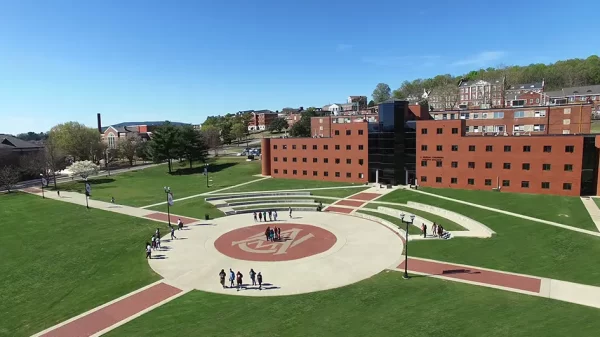By Brandon Moseley
Alabama Political Reporter
On Wednesday, March 2, a public hearing was held by the Senate Finance and Taxation Education committee on allowing the University of North Alabama to give new hires the option of opting out of the Retirement Systems of Alabama (RSA) pension plan, and instead putting their pension contributions and the University match into a 401k type investment product.
Senate Bill 247 is sponsored by State Senator Tim Melson (R-Florence). Sen. Melson said that with SB247, “I am going against RSA on this one. I represent UNA on a bill today. RSA’s argument is going to be based on they need the money; but if this passes it would cost RSA just 75 cents for everybody in the program to pay. UNA is a great school. This bill allows UNA to go hire employees. This would only affect 20 to 25 employees a year. It takes ten years to vest in RSA. The problem is that UNA, while a great school, is not seen as a final career destination. Qualified faculty applicants don’t see themselves staying at UNA for ten years to get vested in the RSA system.”
Melson explained that UNA would like to be able to give new hires the option of putting their money into 401k instead of the RSA and that their inability to offer this as an option has become a problem in recruiting qualified faculty to UNA.
The Vice President for Business & Financial Affairs at UNA Clinton Carter asked that the legislature, “Allow us to create a new voluntary option. 29 states around the country already have this option. Employees can accept the traditional pension plan or they can choose a portable 401k plan. 13 other states automatically put you into a 401k plan. We are only one of 8 states without a 401k. We have a 401k but nobody participates in our plan because we don’t provide a match. UNA does not have the money to both provide a match and pay into the RSA.”
Carter explained that it takes ten years to get vested in RSA. If an employee decides to leave UNA before then, RSA will only allow them to take their contribution and four percent annual earnings with them. The UNA match is kept by RSA. With a 401k play they can roll over their contribution, the employers match and the real earnings of the money into their new 401k. Carter said, “…we are finding that is a significant recruitment disadvantage. If a potential hire thinks to ask about the plan we lose a quarter of them. I was involved in the effort to hire a new President and we had to increase our President’s pay by $18,000 because of this issue. New employees would have 90 days to select whether they wanted to participate in RSA or have their money go to the new 401k plan.”
Senator Gerald Dial (R-Lineville) said that it is hard to recruit highly qualified professors to come teach. “Your school is no better than the quality of the instructors that you have. This may or may not be the answer. Recruiting quality faculty is just as important as recruiting a skilled athlete.”
Senator Slade Blackwell (R-Mountain Brook) said that the State guarantees RSA makes an 8 percent return on their money, but if an employee leaves, RSA only pays a 4 percent return.
Senator Trip Pittman (R-Montrose) asked, “What is the unfunded liability for UNA.”
Carter answered, “$55 million.”
An RSA spokeswoman also addressed the committee: “This is about fairness to the system. As written, this bill is impossible to administer. It is unconstitutional. If UNA allowed its new employees to opt out of the system the K-12 and other universities would have to pick up their tab. We are paying $10.7 million a year in benefits to their retired employees. That is not fair. The cheaper alternative would be to stay at RSA. If they want to do this we can write the bill so that they are spun off and they can pay their existing $56 million in unfunded liabilities.”
Sen. Blackwell said, “I don’t like the use of the word fair.” Is it air that the AEA association is part of RSA? Is it fair that the state pays an 8 percent return? I would be careful in the use of that word fair.”
Sen. Pittman said that the State has a massive unfunded liability of over $ten billion in the pension system. Right now we are looking at reforming pensions; but pension reform is going to take more money.
Pittman said, “The State needs to find a way to make a lump sum down payment to pay down the unfunded liability. We would like for the markets to come back and start yielding that 8 percent return. We have got to be very careful about letting anybody out of the system. If they want out they need to take their unfunded liabilities with them.”
The RSA spokeswoman said that RSA’s position is that RSA and the legislature have taken the steps necessary to address that. “I firmly believe that the legislature has made the needed reforms to make the system more affordable.”
Sen. Pittman said, “We don’t control the macro economy. On the state side we have a decreasing number of state employees paying into the system.”
RSA’s spokeswoman said, “We are not Social Security. We are not a pay as you go system.”
A spokesman for Athens State spoke in favor of the bill. He said that Athens State recently tried to recruit a qualified faculty member who had already retired from their former University but had a 3 to 5 year working window that they intend to work. He did not see us staying for ten years so withdrew from the recruiting process.
Alabama Education Association Spokeswoman Susan Kennedy said, “40 percent of teachers get out of the profession in the first five years. Over half leave before becoming vested in the system. I don’t think I have ten years at AEA. If UNA leaves that would be hard to swallow for K-12 employees. Other colleges will want to get out of it as well. Athens State has a spokesman here.”
The Senate Finance & Taxation Education Committee will vote on SB247 vote next week.




















































